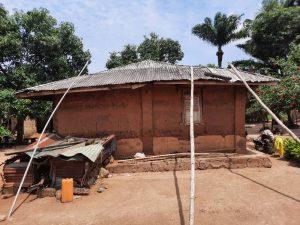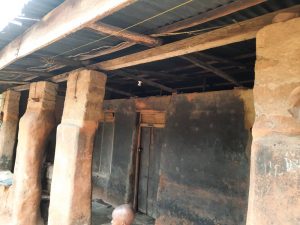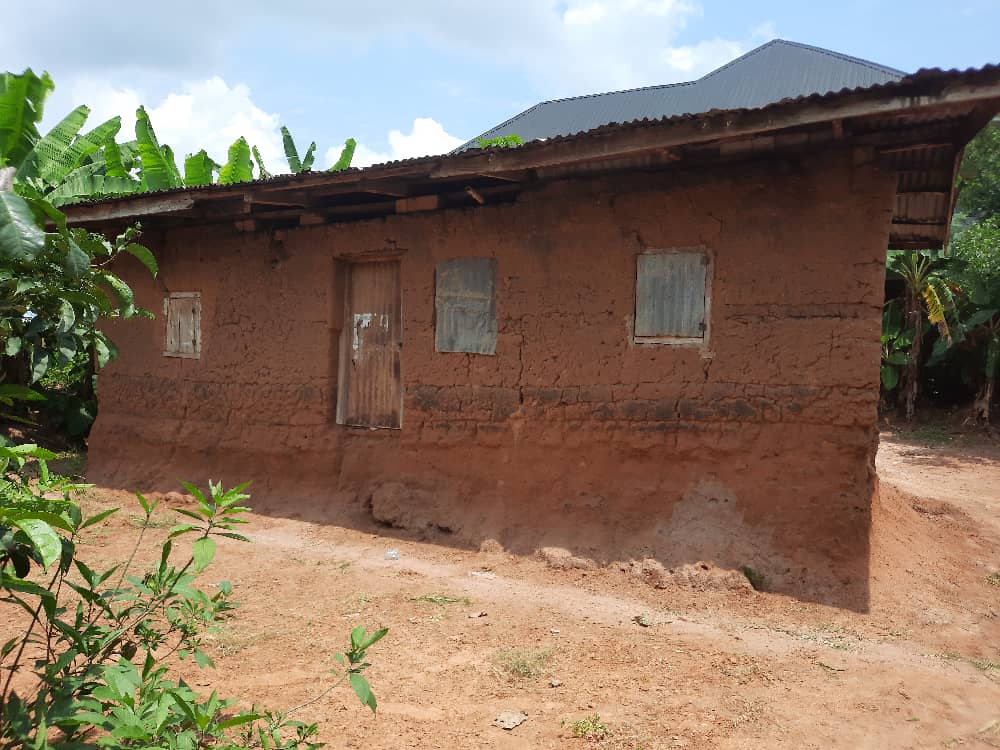In the olden days, mud houses designed with different patterns were popular and fashionable among the influential in different Igbo and African societies. Is it still so today?
Mud Houses or “Unọ Àjà Ọtọ” in Igbo parlance are built with clay soil, and possess high thermal mass, making them absorb heat during the day and release them at night, part of the reasons Africans adopted that method in building houses as they make the rooms cooler in the evenings.
They also have better resistance to fire.

Correspondent, Blessing Dennis reports that for most families, living in such houses is not because they are resisting modernity or prefer the advantages of Unọ Àjà ọtọ, but are left in the predicament because of poverty as they are financially constrained to build modern houses.
ABS News Crew undertook a special visit to a Community in Awka South Local government area and met with families who recounted their experiences, and challenges living in mud houses in the twenty-first Century.
It also observed that in Isiagu Community, “Unọ Àjà Oto “and thatch houses or “Ụlọ Akịrịka”, are gradually giving way to modern houses built with bricks, blocks, cement and concrete or imported materials to satisfy modern tastes.
In an interview with the ABS, Mrs Victoria Nwaokonkwo from Amata village , Isiagu who claimed that her mud house has lasted for over two hundred years having been transferred from generation to generation, said although she still treasures the house, dynamism of life and technology has caught up with her choice.

Another respondent who spoke to the ABS, Mrs Chinasa Nwokonkwo from the same community, is experiencing another tragedy as half of her mud house has collapsed.
She said her family now finds it difficult to sleep as initial repairs on the house with Zinc and other materials are all damaged and they now sleep with one eye opened whenever it rains.
She appealed to the State government, corporate organizations, kind -hearted individuals and other well-meaning groups to remember them and intervene for them.
A tenant in one of the mud houses, Mr Philip Nwora, from Ebonyi State, said he chose to live in the house not because he likes it but could only afford it.
For Mr Michael Okeke, keeping the mud houses is a source of income as Nollywood producers and film makers usually hire the houses as movie locations, serve as tourist attractions and also used as a platform to remind him and family about the legacies of their parents and ancestors.
In their separate remarks, Mr Sylvester Nkemdirim said mud houses are also kept to remind the villagers about the houses and families whose wealth and influence had lasted.









Comments are closed for this post.